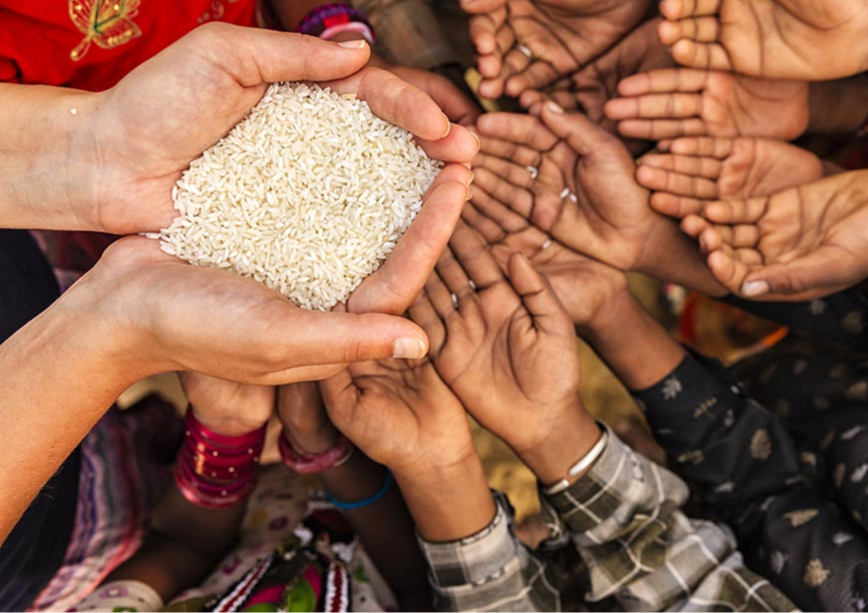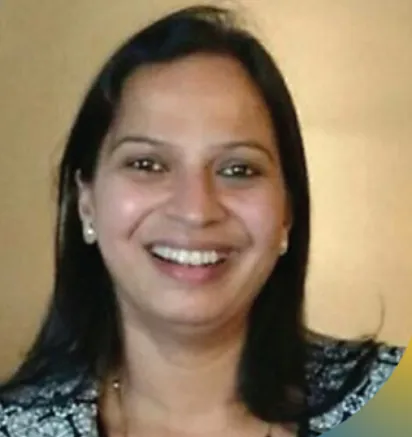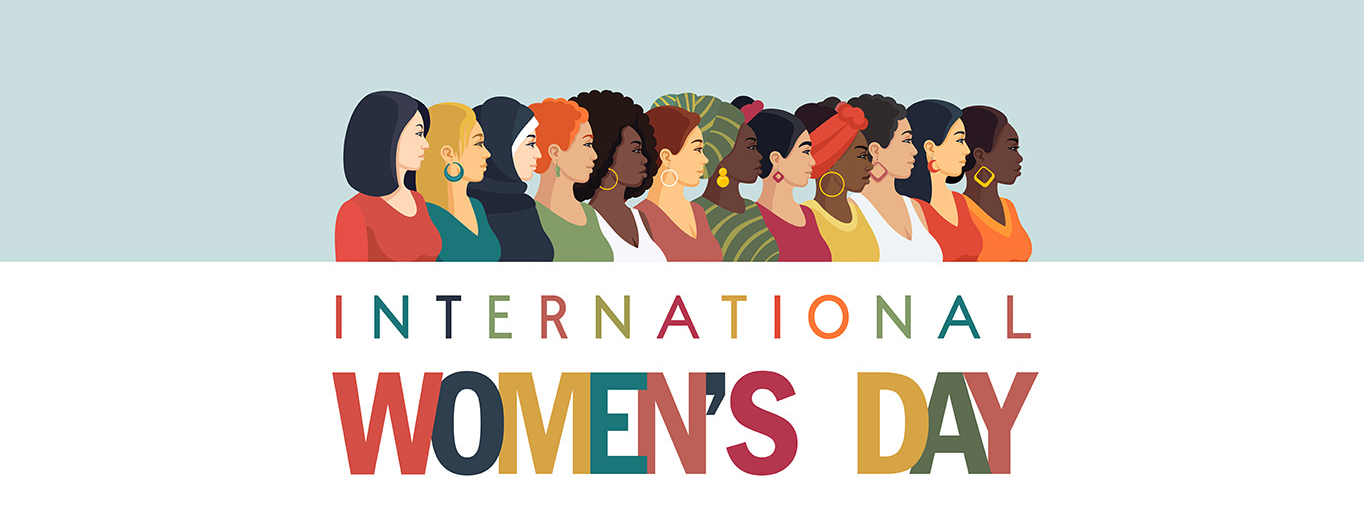
This article is part of the series — International Women's Day
According to the Global Hunger Index, approximately 828 million individuals worldwide experienced hunger in 2021. Around 2.3 billion people, comprising 29.3 percent of the global population, encountered moderate to severe food insecurity in 2021, marking an increase of 350 million individuals compared to pre-pandemic levels. Nearly 924 million people, constituting 11.7 percent of the global population, experienced severe levels of food insecurity, representing a rise of 207 million individuals over two years. Malnutrition, in its various forms, continues to pose a significant challenge globally. Around 45 million children under five years old are afflicted by wasting, while 148.1 million children are stunted due to chronic deficiencies in vital nutrients. Additionally, 39 million children under five years old were overweight. The world's progress toward achieving Zero Hunger appears to be faltering, and if current trends persist, the number of hungry individuals may escalate due to conflicts, climate fluctuations, extreme weather events, and pandemics.
Around 45 million children under five years old are afflicted by wasting, while 148.1 million children are stunted due to chronic deficiencies in vital nutrients.
Women in high-income and upper-middle-class nations are even more vulnerable to being overweight or obese. Globally, the percentage of women experiencing moderate-to-severe food insecurity climbed to 31.9 percent in 2021, while the percentage for men was 27.6 percent. Anaemia affected half a billion women between the ages of 15 and 49 and about 270 million children worldwide. Maternal malnutrition, particularly in the context of pregnancy or lactation, can initiate a vicious cycle of poverty that raises the risk of low birth weight, child mortality (45 percent of deaths occur in children under five), serious illness, poor academic performance, and low productivity at work.
Both men and women are integral to upholding all aspects of food security, each contributing in unique and essential ways. Firstly, they serve as food producers and agricultural entrepreneurs, actively involved in cultivation, harvesting, and livestock rearing, thereby ensuring the availability of food resources. Additionally, both genders assume the role of “gatekeepers” responsible for allocating their time, income, and decision-making abilities to sustain food security within their households and communities. This involves making strategic choices regarding food procurement, distribution, and utilization, prioritising the nutritional needs of family members and neighbours. Furthermore, men and women function as managers of food supply during periods of economic uncertainty, employing resourceful strategies to mitigate shortages and ensure equitable access to food resources. Their collaborative efforts in these various roles form the foundation of a resilient and sustainable food system, vital for safeguarding communities against hunger and malnutrition.
Men and women function as managers of food supply during periods of economic uncertainty, employing resourceful strategies to mitigate shortages and ensure equitable access to food resources.
Women also contribute to food security in their own households, but their contribution is often hidden and undervalued in political, legal and institutional structures, thus, preventing them from achieving their full potential in enhancing food security. Gender inequality contributes to and worsens global food insecurity and malnutrition, impacting the access of both men and women to food and resources in urban and rural communities, as well as the negative gender norms that affect women's access to land, know-how, food and social taboos. Globally, women, particularly women-headed households, are at a higher risk of food shortage, food insecurity, and malnutrition than men.
Gender empowerment and food security are deeply interconnected, with profound implications for achieving sustainable development goals, particularly SDG2: Zero Hunger. The empowerment of women in the context of agriculture and food systems is pivotal for addressing food insecurity and achieving lasting positive outcomes. Empowering women in agriculture enhances productivity and food production. Women make up a significant portion of the agricultural workforce in many regions, yet they often face barriers such as limited access to resources, land ownership rights, and financial services. By providing women with equal access to these resources and opportunities, agricultural productivity can be boosted, leading to increased food availability and improved food security for communities. Gender empowerment contributes to improved nutrition and health outcomes. Women play critical roles as caregivers and decision-makers in households, influencing food choices, dietary practices, and healthcare-seeking behaviours. When women have control over resources and decision-making power, they are more likely to prioritize nutritious food for their families, resulting in better health outcomes, particularly for children and mothers. Furthermore, gender empowerment promotes resilience to food insecurity and climate change. Women often possess valuable traditional knowledge and skills related to agricultural practices and natural resource management. When empowered, women can actively participate in adaptation and mitigation efforts, contributing to sustainable agricultural practices and ensuring food security in the face of environmental challenges.
Women make up a significant portion of the agricultural workforce in many regions, yet they often face barriers such as limited access to resources, land ownership rights, and financial services.
Due to the agrarian transition and its gendered dynamics, women are assuming increasingly significant roles as farmers and livestock herders. Despite this shift, their autonomy as food producers is severely constrained by various challenges. These hurdles include limited access to land, financial services, extension services, and markets, as well as insufficient benefits from agricultural research and development initiatives. Addressing these barriers through gender-sensitive strategies would yield substantial productivity improvements. Such advancements would not only benefit the women directly involved but also extend to their households, communities, and society at large.
The empowerment of women and the reduction of gender disparities within agricultural and food systems are pivotal components in the global campaign to eliminate hunger, malnutrition, and poverty. These efforts are closely aligned with SDG2, which aims to achieve Zero Hunger by 2030. Women, who constitute a significant portion of the agricultural workforce worldwide, play vital roles in food production, processing, and distribution. Empowering women in agriculture and food systems involves providing them with equal access to resources, including land, credit, and technology. It also entails addressing structural barriers such as discriminatory laws and cultural norms that limit women's participation and decision-making authority. Research has shown that investments in women's empowerment yield significant returns, not only in terms of economic growth but also in improving health outcomes, education levels, and overall well-being within communities. By prioritising gender equality and women's empowerment in our efforts to achieve Zero Hunger, we can create more inclusive and sustainable food systems that benefit everyone. Empowering women often results in improved nutrition, positively impacting child and maternal health outcomes. To optimise productivity, bolster health outcomes, and nurture overall welfare among women, their children, families, and households, it is essential to prioritise the attainment of women's food security, nutritional needs, financial stability, and equitable access to quality employment opportunities.
Shoba Suri is a Senior Fellow with the Observer Research Foundation
The views expressed above belong to the author(s). ORF research and analyses now available on Telegram! Click here to access our curated content — blogs, longforms and interviews.




 PREV
PREV



